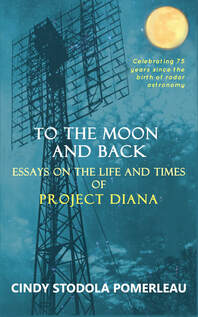All this is by way of saying that Daisy came from a long line of very Protestant Protestants.
Somewhere around 1888, when Daisy was around eight years old, she was brought to the tiny town of Barre in Central Massachusetts, not far from where the Wards had originally started their New World adventure 250 years earlier, by a family who, in return for extracting her from the hardscrabble circumstances in which the Wards found themselves, expected her to do domestic labor—to be a servant girl, in other words. Fortunately, Daisy was smart enough to teach herself to read and write, though she never found a way to lift herself out of the hard-working working-class existence in which she was mired.
In 1897 Daisy married a first generation French Canadian from Port Henry, New York named John Richard Dahart. (D-A-H-A-R-T, pronounced DAY-heart, was apparently the best the census takers or border officials could do with the family's original surname, DesHaies.) Daisy was 17, John was 20, and their first child was already on the way. Probably as a condition of a marriage she was in no position to decline, Daisy agreed to raise her children in the Catholic faith.
After her first five or six children, however, Daisy decided she had fulfilled her obligation to the Catholic Church, and the rest of her children attended the much more conveniently located Methodist Church. My mother, Elsa Dahart, was eighth in the lineup and thus part of the Methodist contingent.
As I noted in my book about my father and his work as a radar scientist, however, her Methodist faith wasn’t sticky enough to survive her exposure to the Unitarian Church to which my father belonged. A religion that combined rationality, social justice, and something like a spiritual connection suited her quite well, and she happily remained in its fold for the rest of her days.
One small exception, however—my mother always maintained that the Methodists had better hymns than the Unitarians. My mother never forgot the words to any poem, song, or corny saying she ever heard, and one of her favorite hymns, as she often told me, was “Brighten the corner where you are.” I googled the lyrics as I was writing this post, and although they predictably dive deeper and deeper into religious doctrine as the verses progress, the chorus pretty much sums up the message:
Brighten the corner where you are!
Brighten the corner where you are!
Someone far from harbor you may guide across the bar;
Brighten the corner where you are!
Obviously the timing of the article was driven by the pandemic, which encouraged reflection on the fragility of life and on the principles that should guide us at such moments. As I framed my own thoughts on the topic, I decided I could do worse than “Brighten the corner where you are.” As an intractable introvert, I actually found myself quite well adapted to perpetual quarantine. Of course, I missed the simple luxuries of daily living like choosing my own onions and tomatoes, and I longed to hug my daughters and grandchildren. I also readily acknowledge my great good fortune in having enough elbow room, enough food to eat, enough of the comforts of home to support my health and wellbeing.
But within these parameters, I didn’t miss restaurant outings or movie theaters or parties or foreign travel nearly as much as so many others seemed to do. I was never restless or bored. As I frequently remarked, as long as I had my “four C’s”—my companion, my computer, my cat, and my cooking—I was able to stay sane and active, and productive enough to write a book. I found that weekly Zoom sessions with friends and relatives—including a new tradition of going on a weekly “walk” with one of my daughters—actually deepened some of my relationships and added dimensions that hadn’t been there before.
To the extent that brightening the corner where you are means buying local, when I surveyed what some might call my constricted little world, one of the first items I saw on my desk was a tile painted by a Michigan artist with essentially the same message: “Bloom where you’re planted.” It's a small reminder that pleases me every time it catches my eye.
As I grow older, I no longer see my life as looming endlessly before me. Only a finite amount of time remains to make progress on my still-lengthy to-do list. (I don’t have a bucket list but yes I do have a to-do list—mostly consisting of finding ways to beguile my family with the stories I think they need to hear about how their forebears, including the Wards and the Daharts, participated in the larger sweep of human history. You may not need to know where you came from to know who you are, but it sure does help!)
Living through a pandemic is not a feature I’d have chosen as part of my lifetime window on the world, and no, I’m not looking to return to seclusion anytime soon—though I now know I can do it if I have to. But a pandemic however unwelcome is what we've all had doled out to us, and I hope some of the unexpected blessings and life lessons accrued from sheltering in place don’t go away just because we eventually manage to achieve herd immunity.

 RSS Feed
RSS Feed